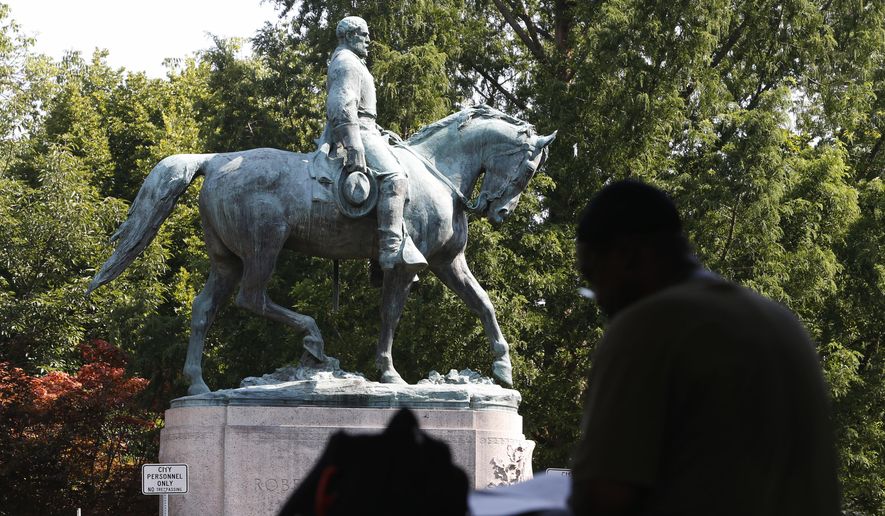A judge in Virginia has ruled that statues of Confederate generals in Charlottesville are covered under a law that prevents cities from removing war monuments without the state’s approval.
Charlottesville Circuit Court Judge Richard Moore made the determination in response to a lawsuit filed against members of the Charlottesville City Council after they voted in 2017 to relocate statues depicting Robert E. Lee and Thomas “Stonewall” Jackson from two local parks.
In a recent nine-page ruling, the judge sided with plaintiffs in support of the statues and said that both are clearly war monuments and accordingly protected by state law.
“I find this conclusion inescapable,” the judge ruled Thursday. “It is the very reason the statues have been complained about from the beginning. It does no good pretending they are something other than what they actually are.”
“I believe that defendants have confused or conflated 1) what the statues are with 2) the intentions or motivations of some involved in erecting them, or the impact that they might have on some people and how they might make some people feel,” he added. “But that does not change what they are.”
The Charlottesville City Council voted to remove the Lee monument in February 2017, prompting several residents led by Frederik Payne, a local attorney, to follow suit the following month.
Protesters separately staged a demonstration to rally against the Lee monument’s removal in August 2017 dubbed “Unite the Right.” Organized by a local white nationalist activist and attended by several neo-Nazi groups, the event culminated in a participant killing a counterprotester, Heather Heyer.
The Charlottesville City Council voted weeks later to remove the nearly Jackson statue, but both monuments have remained standing in light of the litigation.
Brian Wheeler, a spokesperson for Charlottesville, told The Washington Times that the ruling resolves only a portion of proceedings at hand.
“The ruling resolves one major legal issue in this case, specifically it sets forth Judge Moore’s opinion that the statues are war memorials. With the outstanding motions remaining, the judge will decide whether damages or attorney fees need to be paid and whether that question will go to trial in September 2019,” said Mr. Wheeler.
“The City has no additional comments on the case at this time,” Mr. Wheeler added.
Judge Moore said he plans to resolve the remaining issues sometime in May. He is slated to hold a hearing on Wednesday this week to discuss the case’s status.
Virginia state law codified in the 1950s makes it “unlawful for the authorities of the locality, or any other person or persons, to disturb or interfere with” any war monument.
Buddy Weber, a spokesperson for the plaintiffs, is pleased with the judge’s ruling, Charlottesville’s WCAV reported.
Heyer, 32, was killed after “Unite the Right” attendee James Alex Fields drove his car into a crowd of counterprotesters. Fields has since been convicted of first-degree murder and has pleaded guilty to federal hate crime charges and awaiting sentencing.
• Andrew Blake can be reached at ablake@washingtontimes.com.




Please read our comment policy before commenting.